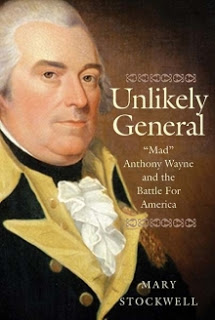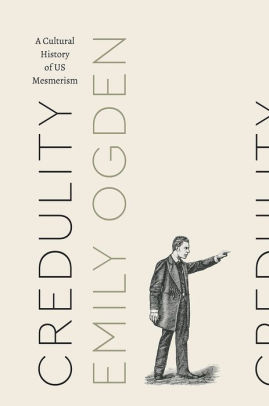 Mary Stockwell is the former chair of the history department at Lourdes University in Ohio and the author of The Other Trail of Tears: The Removal of the Ohio Indians and other books.
Mary Stockwell is the former chair of the history department at Lourdes University in Ohio and the author of The Other Trail of Tears: The Removal of the Ohio Indians and other books.Here Stockwell dreamcasts an adaptation of her new book, Unlikely General: "Mad" Anthony Wayne and the Battle for America:
Every writer who tackles the story of Anthony Wayne faces the problem of bringing to life a man known primarily as “Mad Anthony.” When I was researching Wayne, leading up to the publication of my book Unlikely General: “Mad” Anthony Wayne and the Battle for America, I noticed that most people – from professors and librarians to amateur historians and history buffs – dismissed Wayne as a reckless fool who fought like a madman in every battle.Visit Mary Stockwell's website.
The Wayne I had discovered bore no resemblance to this fiend. He was instead a brilliant writer who thought deeply about the politics of his age. At the start of the Revolution, he was on fire for war and its glory, seeing every battle from Brandywine to Yorktown as his hero Julius Caesar might have fought it. But by its end, he came to view war as a “horrid trade of blood.” After peace was declared, he could hardly put his life back together again. His marriage had fallen apart through his countless affairs. He had nearly bankrupted his family with bad loans. He won a seat in Congress only to be removed for voter fraud. On many mornings, he was so swollen that he had to wrap his arms and legs in flannel. He battled a crippling depression eased only by brandy and Madeira. A desperate President George Washington, who had already seen two armies massacred by Indians, had to overlook all of this in 1792 when he appointed Wayne as the commander of a third American army that must wrest the Ohio Country from the tribes.
How was I to tell the story of a once valiant hero who had fallen from grace only to be called into one last battle to rescue his nation? I decided the only way to bring Wayne to life was to construct his biography like a modern novel where the narrative moves back and forth between the present and past. One timeline would follow Wayne from his appointment as the army’s commander to his victory at Fallen Timbers and finally to his death. The other would flash back to his past, showing how he had come to this present moment, while at the same time telling the story of the many people Wayne had encountered along the way.
As I wrote Wayne’s story, I often found myself saying, “This would make a great movie.” I could see only one person playing the role of this unlikely general. It had to be Russell Crowe. It wouldn’t take much to alter his costume in Master and Commander to make him look like Wayne did in 1792. But even more important, what better actor to play a “mad” man with hidden depths than Russell Crowe whose acting style perfectly revealed the inner workings of the characters he portrayed? Who better to play a general who had left a record of his thoughts in thousands of letters that lay forgotten in libraries across the nation he fought so hard to create than the thinking actor Russell Crowe? Finally, who better to play a general who viewed the world in terms of all that had befallen Julius Caesar than Maximus Decimus Meridius himself?
As the deadline for Unlikely General grew closer, flashes of “Wayne the Movie Starring Russell Crowe” kept me going. After all the reviewers’ comments were addressed, every last verb was tweaked to keep the narrative flowing, and all the footnotes were checked and rechecked, the last comment from the last editor to work on the book made it all worthwhile: “This book would make a great movie.”
--Marshal Zeringue





















